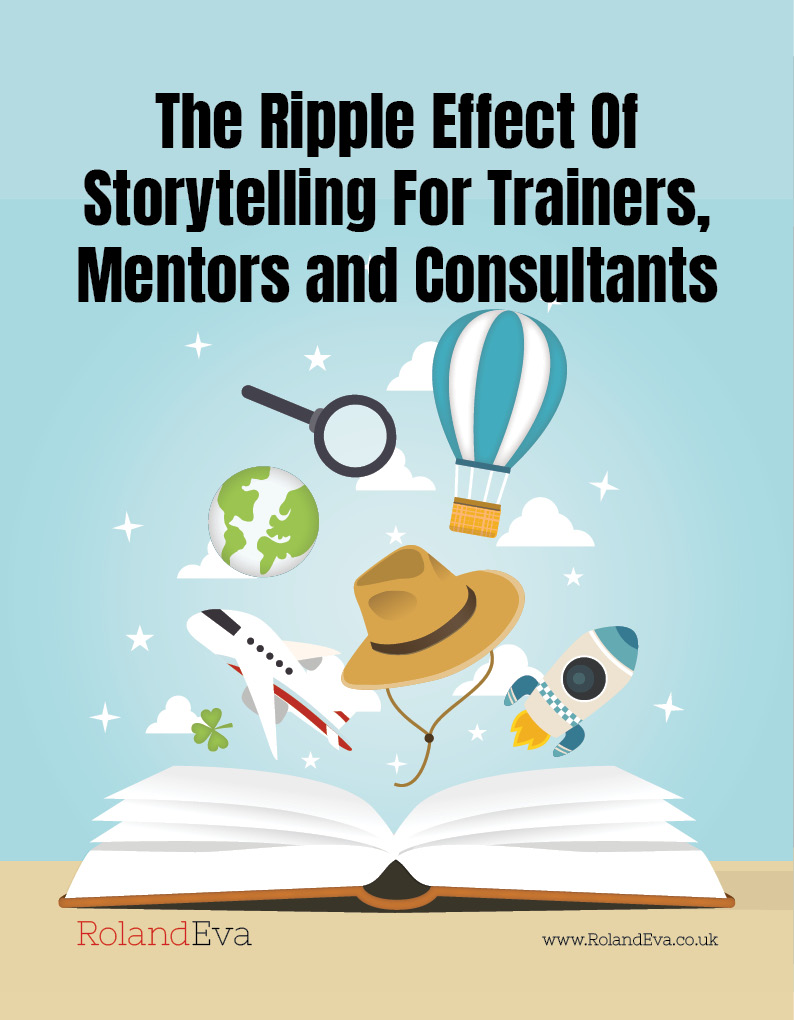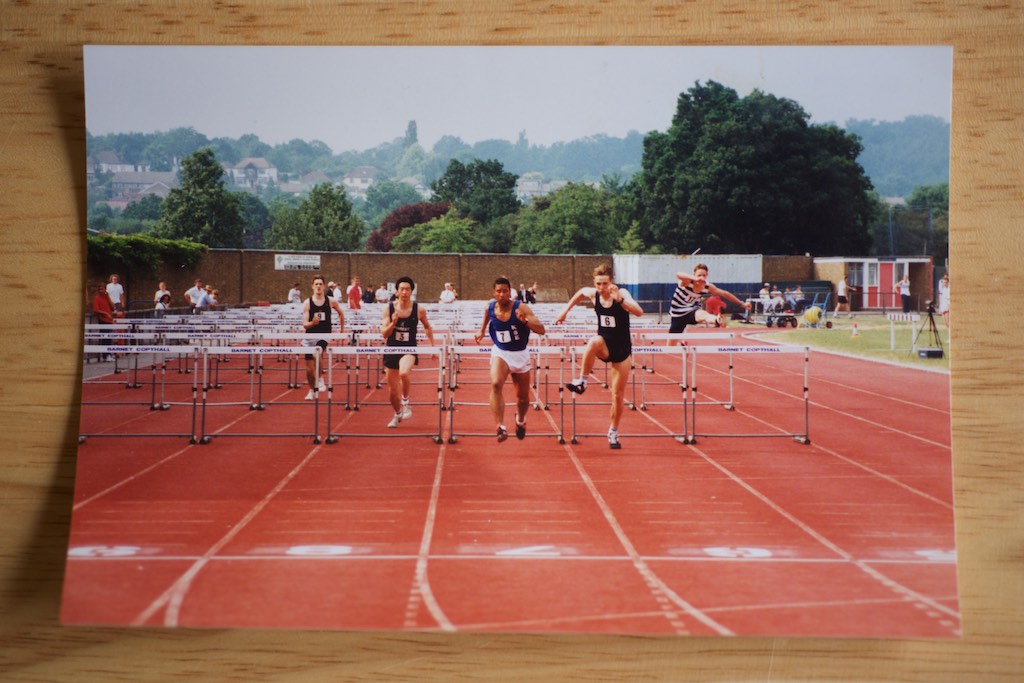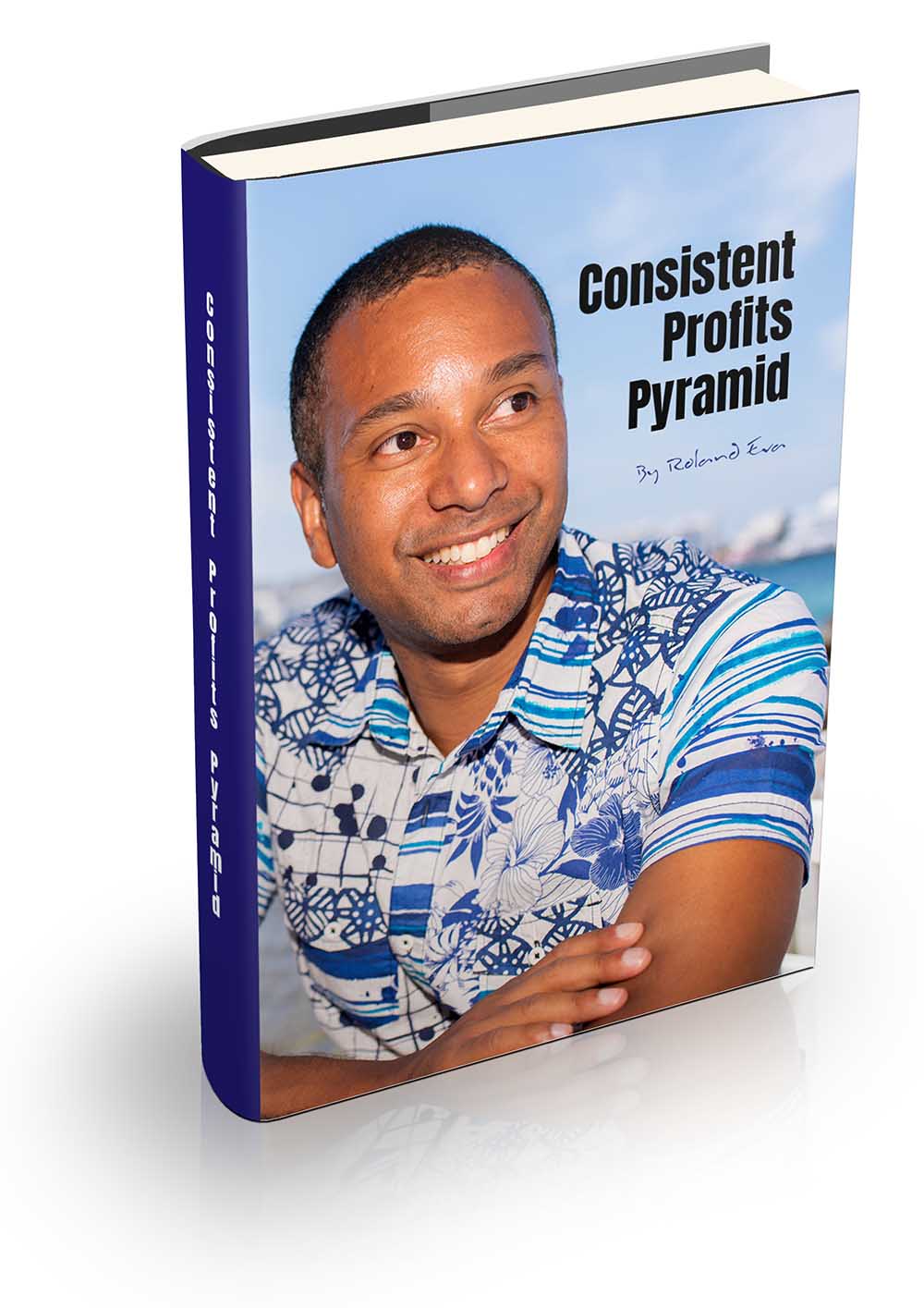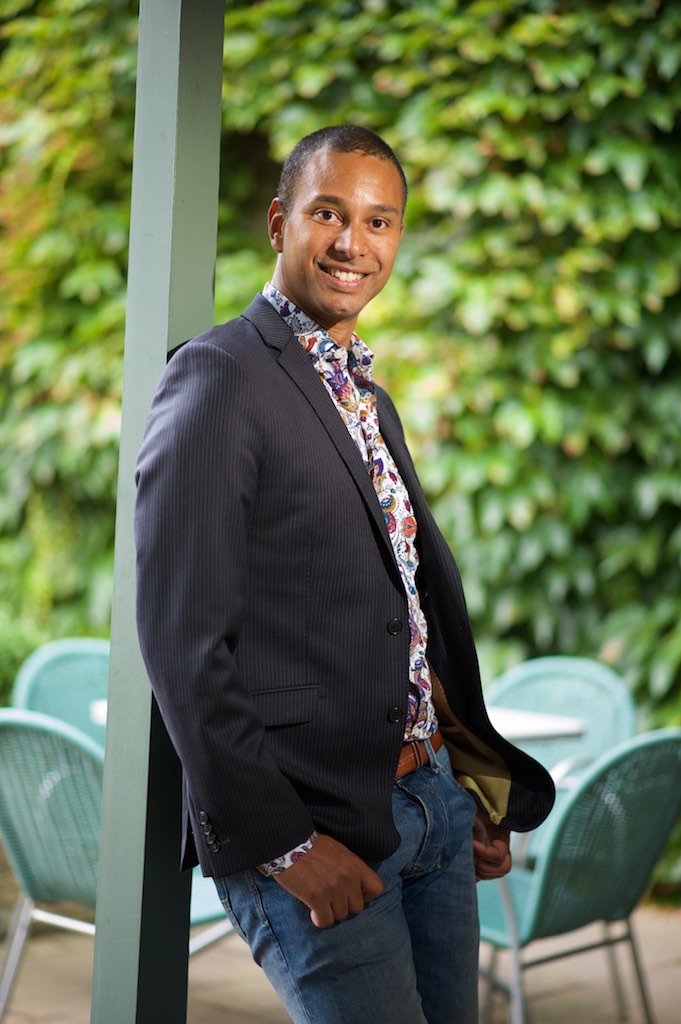The Ripple Effect Of Storytelling For Trainers, Mentors & Consultants
Is storytelling an indulgent luxury?
Or...
Is storytelling a business necessity?
After all, don't people only want to learn how to do something new? Don't they only want to know how to use your 5-step system as fast as possible so they can achieve their goals?
Nothing could be further from the truth!
Why?
Because you are selling something intangible. You are selling the promise of a better life when they use your system.
Once they have parted with their hard earned cash. Your buyer does not get a shiny new object that they can show off to their friends.
They get access to some information. Or to put it another way. You give them the key to a school filled with hard-won secrets. Then you give them homework.
But...
That's what they want, right? After all, that's what they've paid for.
Wrong!
They want a better life. The bridge between where they are now and the life they want is your course. So, they don't really want your course. They want a better life. Your course is the fastest way to get the life they want.
Before you can tell them how to seize the life of their dreams. You have to get past your reader's biggest objection...
The biggest objection that the reader has to everything that you say or write is... Who are you and why should I believe anything that you have to say?
The ONLY way to overcome that objection is by telling your inspirational personal story!
So, if stories get past your readers biggest objection, and earn their trust. What story or stories do you need to tell? And where do you need to tell them?
That's what this blog will show you.

What Stories Do You Need To Tell?
To answer the question Who are you and why should I believe anything that you have to say?
You need to tell your Epic Story. The story that explains why you wanted to make a change in your life, the challenges you faced along the way and what happened when you reached your goal.
Your Epic Story explains how you created your system and why it is better than anything else you've ever used.
Your Epic Story shows that you are just an ordinary guy that refused to give up.
Your Epic Story shows that you didn't have any special skills. You learned a better way of doing things through study and practice, until finally you created a life-changing system.
Your Epic Story shows that amazing results are possible.
My Epic Story explains how I made £672,989 in 9 days!
My wife tells me all the time "that sounds like spam".I can understand why she thinks that. So, what should I do? Should I reduce the result that I achieved to make it more believable? Or should I explain how I achieved that result?
What would you do?
I'm not going to lie. So, my only option is to show how it took me 7 years to discover a system that made £672,989 in 9 days.
As a trainer or mentor, you are always walking a fine line. You've got to make a big enough promise to catch your ideal customer's attention. But if you make a promise that's too big, you risk sounding like spam.
I've opted for the 100% honest approach. Even if this does make my system sound too good to be true.
You see, I'd much rather grab someone's attention with an outrageous headline, that I have to immediately justify. I'd rather pull them into my dangerous journey of discovery with breathless excitement. Rather than write a weak, everyday story that is not true.
So your Epic Story is your most important story. It's the story you need to tell most often. It's the story that you will become known for.
Why Do You Need To Tell Your Epic Story Often?
Because no one will remember it. If you tell your Epic Story well, then you will give your audience something much more powerful...
... you will inspire them to change their lives.
It was Maya Angelou who said
"People will forget what you said. People will forget what you did. But people will never forget how you made them feel."
People never tire of hearing an inspirational personal story. They want to get to the end and feel inspired to do the same thing in their life. They want to know that they can achieve anything they want to... if they learn new skills and work hard enough to get the results they want.
So, why do you need to tell your Epic Story more than once? Because you aren't the most important person in your reader's life.
The only person that remembers everything that I say is my daughter. Everyone else will forget the details of my story because I'm not the most important person in their life.
So use that knowledge to your advantage. Tell your Epic Story often. Fill your community with the belief that they can change their lives. They will thank you for it.
So that's the first story you need to tell. That's the most important story you need to tell. But, it's not the only one.
After all, you'll have other stories of struggle and success before and after that moment.
As long as you are trying new things, you'll have more stories of struggle and success.
The reason why you need to tell multiple stories is so your community feels like they know you. You are also trying to earn the trust of your community. You do that through the stories you tell.
So What Do You Want Your Community To Know About You?
What do most people you speak to NOT know about you? And why?
You see, we hide the stories of our struggles and failures. Yet these are the stories that earn trust.
By having the courage to talk about your challenges, your worries and your insecurities. You make your audience see that you are just like them.
As an athlete and musician, I always thought the superstars never felt nervous. I thought they wouldn't feel nervous because they knew how good they were.
The truth is that they felt more nervous than most people. Certainly more nervous than I did. The difference was that they learned to control their nerves. They learned to channel that energy into a better performance.
I tried to hide and suppress my nerves. I wanted to focus on the job at hand and visualise success. I didn't want to feel sick. And I didn't want to admit to myself that I felt like this.
Then I spoke to some amazing athletes and musicians about how they felt before a race or a concert. To my surprise they were open about the terror they felt before the most insignificant performances.
The musician that I spoke to, George, played piano in my jazz band. George had been Head Chorister of Ely Cathedral. He had his own CD at 10 years old. So George was a classical music superstar. He went on to study Singing, Trombone and Composition at the Royal Academy of Music. To get in for one instrument is a huge achievement. Getting in for 3 instruments was unheard of.
George told me the terror he felt every time he had to speak in public. Something of little importance made him feel sick. Imagine how he felt before a big concert or an audition.
I was never a great violinist because I didn't practice enough. I loved playing music and played with a lot of passion. But I didn't put in the hours of dedicated practice to be great.
So, when I was the soloist in a concerto I knew this would be the pinnacle of my classical music career. (A concerto is when a soloist is accompanied by the orchestra).
I practised harder for that performance than I ever had in my life. I remember walking on stage awkwardly. My heart was beating so hard that something as simple as walking was hard.
Once I started playing, the months of practice flooded back. I remember the audience and the orchestra. I remember the terror and the joy. Most of all I remember the relief at the end.
When I heard my jazz hero Wynton Marsaslis say that he felt the same thing when playing a concerto I realised that superstars get nervous. Superstars feel the weight of expectation on their shoulders. And what makes them great is how they control their nerves.
Those stories helped me with my music. They helped me see that nerves are something that never go away, and if you want to perform to large audiences. Then you have to accept that nerves are part of the journey.
As an athlete, I idolised Carl Lewis. It's easy to idolise people on TV. People that you've never met. But what about the superstars in your life.
I'll never forget the first time I raced against Matthew Clements. Matthew was a year older than me and because I hadn't lost a race all season I was invited to compete at the county championships in an older age group. That makes no difference if you are running the 100 meters. With hurdles, it was a different distance and a different hurdle height. So there are technical differences. Differences that I had not trained for.
In the car to Peterborough, the teacher said "You won't win today. The guy that's going to in is going to break the national record."
"What do you mean I'm not going to win."I responded"I've won every race this year. Of course I'm going to win."
"We need that kind of arrogance in this car" came the reply from a much older athlete in the back of the car.
I didn't want anyone to think I was arrogant. So I was even more determined to back up that statement with action.
What happened?

I got thrashed... in a race that I came second.
Matthew beat me by 2 seconds, in an 80 meter race. 2 seconds might not sound like much and let me tell you that's a thrashing. I wasn't even competing in the same race as him. Sure, we were on the same track. We both started running when the gun went off. But Matthew was in another world. He was so much better than everyone else.
That beating inspired me to achieve so much more. My friends teased me because of the way I spoke about Matthew. They called him God because I spoke so reverently about him.
Years later, I was invited to join Matthew's training group. This was a big deal. This was my opportunity to reach my highest potential. The coach Bob Smith had coached John Ridgeon to a Silver Medal at the Seoul Olympics. So it was a real honour to train with such a prestigious coach and group of successful athletes.
Once I trained with Matthew, I realised why he was so fast. He worked harder than everyone else.
A week before the qualifying for the World Junior Championships, I asked Matthew if he got nervous before a race. Matthew admitted that he felt nervous before every race. Not just the big events.
Matthew's honesty about his nerves inspired me as much as his work ethic in training and his stunning performances.
Your community wants to know the same thing about you. They want to know that you worry if things will turn out the way you want... and what you do when they don't.
The more you tell your stories of struggle and success. The more your community will feel they know you. The more trust you will earn. And the more sales you will make.
Where Do You Need To Tell Your Stories?
The short answer is everywhere.
You need to tell your stories on your sales page, on your webinars and live workshops. You need to tell your stories in blog posts and in emails.
That's why you need many stories to tell.
Where should you start telling stories? In your emails. This is your number one way to communicate with your community. This is the most frequent communication vehicle. So look for ways to tell stories in your emails.
The hardest thing is to uncover your stories. After all, it's your life. It's easy to think there's nothing remarkable about what you've done.
So rather than looking for "remarkable" stories. Just look for Failure - Struggle - Success stories you can tell.
What I mean by that is, the moment when you got an idea and tested it with great excitement. Only to not get the result you wanted. Rather than give up, you struggled to make it work. You continued to look for ways to get a better result. Until finally you succeeded.
Failure - Struggle - Success stories can take place over a month. They can take place over several months. The point is that you have a hard-won secret to share with your community. A hard-won secret that will help them achieve their goals. And a story that demonstrates your determination, despite the setbacks you faced.
Those stories will earn the trust of your community. Those stories will make your community want to work with you.
What Difference Will Stories Make To Your Bottom Line?
The more stories you tell... the more sales you will make today... and the more sales you will make in the future.
You see, if you make an offer for a product or workshop some people will buy it. Other's won't. Why not? Because it's not right for them. The product could be too basic or too advanced.
But...
If they don't buy today and your stories have earned their trust and inspired them to change their lives. Then you will set up sales for the future.
The foundation of every sale is trust. The deeper the foundations. The more sales you will make.
So tell as many stories as you can. Look for opportunities in your emails, in your blog posts, in your podcasts, videos, webinars and sales pages.
Storytelling is like any other skill. The more you do it, the better you'll become. So, start telling stories. They don't have to be long and they don't have to be earth shattering. As long as they explain how and why change happens honestly. They will inspire and earn trust.
Now It's Your Turn
The first step is to find 3 stories that you can tell. 3 stories that prove to your audience that you haven't always had it easy. In fact, you still don't have it easy.
Show your audience the idea and why you thought it would change the world. Then tell them about how long it took you to bring the idea to life. And the disappointment you felt when you hardly made any sales. Then show the process you went through to improve your idea until it made the sales you wanted.
If you've found this useful, then please leave a comment below.
If this can help someone you know, then please share it with them.
Until next time...
Carpe diem
Roland Eva
P.S.When bankruptcy stole my first business. I made a commitment to myself to discover a repeatable system to turn strangers into customers on demand. A journey that ended when I made £30,105 in 9 days… without making a single sales call.
It's a system that I've used in many industries. To sell products and services ranging in price from £5 to £12,000.
A system that I've used repeatedly in campaigns that have dwarfed that initial success.
I'd like to show you how to use my simple 3 step system in your business so you can turn strangers into customers on demand. And build your dream business. A business that gives you the income and lifestyle you want.
Unfortunately, I can't show you how to use my simple 3-step system here. The post would run too long.
That's why I've written the book Consistent Profits Pyramid. The book shows you how to use my simple 3-step system in your business. So you can turn strangers into customers... on demand.
I'd like to give you a FREE copy.
To download your FREE copy now. Click the link below.

Here's Just A Taste Of What's In The Book:
- How to find 'red hot' leads without spending a penny. Red hot leads are people that need your help and are willing to pay for it.
- How to create a competitive advantage that no one can steal.
- How to answer the question "Why should I do business with you?" in a way that makes people say "Wow! Tell me more."
- How to turn 'strangers' into customers using an irresistible offer. I'll walk you through my 5-step system to create your own irresistible offer.
To download your FREE copy now. Click the link below.
About The Author

I'm a copywriter and business growth consultant, trainer and mentor that turns expertise into cash. I achieve that by telling true stories that inspire people to change their life. That’s what makes people feel good about buying.
For the last 5 years, I've helped business owners to sell products and services in many industries. The products and services have ranged in price from £5 to £12,000.
My most successful campaign made £672,989 in 9 days.
I took that result and transformed it into a simple repeatable system. A system that I use as a consultant to create a giant leap in sales.
A system that I teach to ambitious entrepreneurs that want to make money on demand without a sales team.
